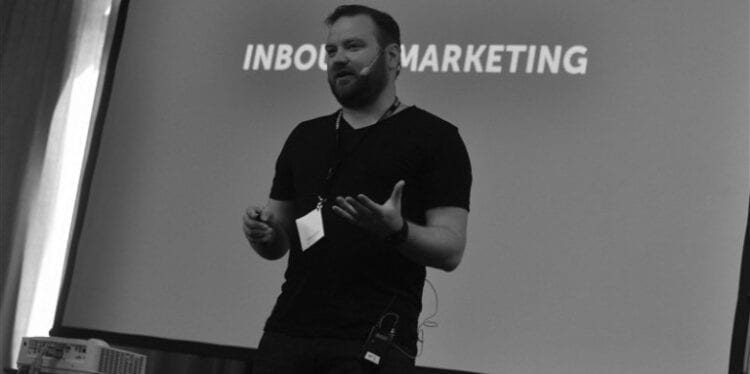Every brand needs to prioritise its online base camp.
This post will discuss why your organisation might benefit from shifting its focus away from social media and onto the brand’s website.
Here we go:
The Online Base Camp
I’ve devised brand strategies for over a decade and am in awe of social media’s power. It’s a global cultural melting pot of ideas and expressions.
But as PR professionals, we’d be wise to remember that social media is a mass phenomenon. Few brands enjoy the success often associated with influencers.
In the corporate universe, it’s digital-first.
Not necessarily “social media” first.
A brand’s website — its online base camp — is often underused, underestimated, and underappreciated.
Many organisations overestimate their social media presence and underestimate their online base camp — their website.
But it shouldn’t have to be that way.
From Digital Peasant to Digital Landowner
Social media has been a priority for many organisations for many years. But digital-first is more than just social media. And, let’s face it: social media doesn’t work for all organisations alike.
A brand’s website should be its online base camp, a place for like-minded people to brainstorm, test ideas, put up roadmaps, and review logs.
Unfortunately, website publishing is seen as boring. But that’s just because the exploding scene of middle-hand services won’t bother to promote you taking complete control of your organisation’s web presence.
Social media, on the other hand, keeps us on our toes. Networks like YouTube, TikTok, Twitch, Facebook, Twitter, Reddit, Instagram, LinkedIn, and Snapchat keep us on our toes, and they have a knack for dominating our newsfeeds.
But the truth is that very few brands do well on social media. For many brands, it makes more sense to be digital landowners than digital peasants.
Putting All Eggs in the Social Media Basket
If social media marketing works for you, that’s great.
But we should recognise that social media publishing for brands comes with significant drawbacks:
Complaining about social media won’t get you results; neither search engines nor social networks are known to give in to user demands. Either you play according to the social network’s rules or don’t play at all.
Controlling Your Online Presence
Many brands could probably do much better if they focused their resources away from social media and directed them to their websites.
Investing in your corporate website is a pragmatic priority in today’s digital-first media landscape.
I started blogging before it was cool, and I kept blogging well past the hype days — and I’m still at it. I wouldn’t trade having a fully controlled online presence for anything, nor should you.
Because here’s the thing:
Websites are uniquely flexible. One single website can simultaneously accommodate several high-level PR strategies on autopilot. And the entire infrastructure is under your control. Social media marketing can’t do this.
As the paradigm of inbound communications entered the online universe, it has been proven that many brands must rely on “publishing a continuous stream of new content.”
Why You Need an Online Base Camp
Website publishing extends well beyond what we typically think of as blogging. Some publishers like to call their platforms newsrooms, others content hubs, and some don’t call them anything.
No matter what you call it, being a digital landowner is more than just having a format for newly published content.
To emphasise the importance of a controlled corporate online presence, I’ve started referring to clients’ websites as their online base camps for:
In other words:
If social media isn’t a good fit for your organisation, stop banging your head against the wall. Instead, shift your focus to the brand website, your online base camp.
Learn more: The Online Base Camp
Digital Sharecropping
Nicholas Carr popularised the concept of digital sharecropping in the mid-2000s and is an apt analogy for how modern digital ecosystems function. 1Carr, N. (2006, December 19). Digital sharecropping. Rough Type. https://www.roughtype.com/?p=634
Digital sharecropping = the phenomenon where individuals or businesses create content on platforms they do not own and have little control over, much like sharecroppers in agricultural economies who worked land owned by others. 2Silfwer, J. (2025, March 13). Digital Sharecropping. Doctor Spin | The PR Blog. https://doctorspin.net/digital-sharecropping/
From Agrarian to Digital
To understand digital sharecropping, we must first explore its namesake: traditional sharecropping.
Digital Sharecropping in Everyday Life
Digital sharecropping is ubiquitous, though many do not recognize it. Here are some real-world examples:
Effects on Cultures and Societies
Digital sharecropping has profound effects on economics, culture, and power structure.
How To Escape Digital Serfdom
Digital sharecropping is not sustainable in the long run. To avoid being a digital serf, consider these strategies:
Digital Feudalism or a New Renaissance?
Digital sharecropping is an elegant yet insidious evolution of economic dependency. Just as traditional sharecroppers found themselves trapped in a cycle of labor without ownership, today’s digital creators, gig workers, and entrepreneurs are building wealth for platforms rather than themselves.
The future is uncertain — will we break free and return to decentralised, user-owned digital spaces, or will AI-driven, corporate-controlled ecosystems tighten their grip?
The question is:
Will you be a digital peasant or a digital landowner?
Learn more: Digital Sharecropping
The Inbound Shift
As public relations professionals, we must rethink how we think about publics. Traditionally, many PR departments have argued:
“Why should we waste budgets on ‘already acquired’ audiences?”
The truth is — it’s the other way around.
The inbound shift is a fundamental mindset change in the public relations industry.

Instead of “spamming” non-existing audiences, public relations and marketing can do much more with existing online publics. 3Silfwer, J. (2015, June 11). The Publics in Public Relations. Doctor Spin | The PR Blog. https://doctorspin.net/publics-in-public-relations/
Inbound vs Outbound: The Difference
Inbound vs outbound is the online equivalent of drawing the line between those who know you and those who don’t.
Drawing a line between those who know you and those who don’t know you is nothing new:
If your inbound shift PR strategy is strong, you might no longer need to prioritise your outbound PR strategies since your inbound audience will attract outbound publics!
Learn more: The Inbound Shift PR Strategy
List of PR Blogs

PR blogs come and go, and some seem to go on and on — I should know. I’ve been blogging before, during, and after it was considered cool. Today, I still find that having a great website is underrated.
Many organisations overestimate their social media presence and underestimate their online base camp — their website.
Blogging is still the cornerstone of content communications. To stay current, I update this list with active blogs on public relations and communications (2024).
Would you happen to know of an active PR blog that I should include in this list? Please let me know!
Learn more: Doctor Spin’s List of PR Blogs

THANKS FOR READING.
Need PR help? Hire me here.

What should you study next?
Spin Academy | Online PR Courses

Spin’s PR School: Free Web Strategy PR Course
Get started with this free Web Strategy PR Course and learn essential public relations strategies and concepts for online PR success.
Iceberg Publishing
Conversion Design
Website Psychology
Learn more: All Free PR Courses
💡 Subscribe and get a free ebook on how to get better PR.

Annotations
| 1 | Carr, N. (2006, December 19). Digital sharecropping. Rough Type. https://www.roughtype.com/?p=634 |
|---|---|
| 2 | Silfwer, J. (2025, March 13). Digital Sharecropping. Doctor Spin | The PR Blog. https://doctorspin.net/digital-sharecropping/ |
| 3 | Silfwer, J. (2015, June 11). The Publics in Public Relations. Doctor Spin | The PR Blog. https://doctorspin.net/publics-in-public-relations/ |



